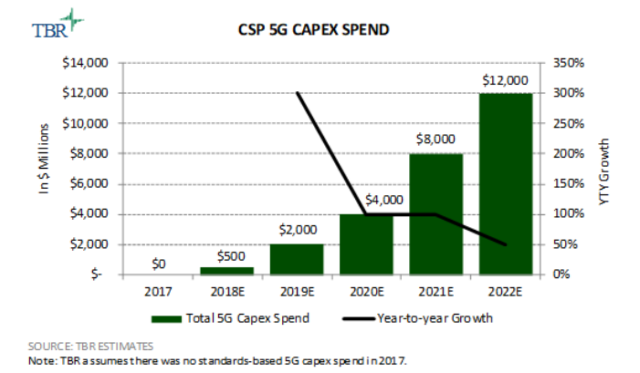Mobile operators have spent $3.47 billion to buy 5G spectrum in the 600 MHz band, which is not a very popular frequency, to power 5G networks in Canada during the spectrum auction.
 Rogers Communications dominated the 5G spectrum auction, winning 52 licences in every province and territory for $1.725 billion.
Rogers Communications dominated the 5G spectrum auction, winning 52 licences in every province and territory for $1.725 billion.
“This spectrum is vital to the deployment of 5G in Canada and we are well positioned to bring the very best of 5G to Canadians,” Rogers CEO Joe Natale said.
Telus spent $931 million on 12 5G licences.
BCE, Canada’s largest telecommunications provider, did not win a single licence.
Bell said it decided not to buy any 600 MHz spectrum because it already has enough in other bands.
“Given the supply of other low-band spectrum that Bell already possesses, 600 MHz is not required for Bell to deliver broadband 4G and 5G services,” Bell said.
Telecom operators in the U.S. also didn’t buy 600 MHz licences in the U.S. auction. In the American 600 MHz auction, AT&T spent about US$1 billion on spectrum while Verizon and Sprint did not participate.
Canada had banned the Big Three operators from bidding on three out of seven spectrum blocks (43 percent), which were set aside for players with less than 10 percent of the national market share in an attempt to boost competition.
Shaw Communications and Quebecor won roughly the same amount of licences as Telus but for less. Shaw’s Freedom paid $492 million for 11 licences and Quebecor’s Videotron won 10 licences for $256 million.
“The addition of this 600 MHz low band spectrum will not only vastly improve our current LTE service but will also serve as a foundational element of our 5G strategy providing innovative and affordable wireless services,” said Brad Shaw, chief executive officer, Shaw Communications.
Rogers spent approximately $1.71 MHz per person in a coverage area, Telus spent $2.35 MHz/pop, Videotron spent $0.99 and Freedom spent $0.78.
Other winners included Iristel, which serves the North under the brand Ice Wireless, Bragg Communications, which is based in the Maritimes and operates as Eastlink, SaskTel, TBayTel and Xplornet. SSi Micro and Novus Technologies were qualified bidders but did not win any licences.
Canada Government will be selling the 5G spectrum in the 3500 MHz band in 2020 or 2021 to generate more funds.
Innovation, Science and Economic Development revealed 12 qualified bidders went through 54 rounds of bidding over 18 business days before the government awarded 104 licences to 9 participants.
